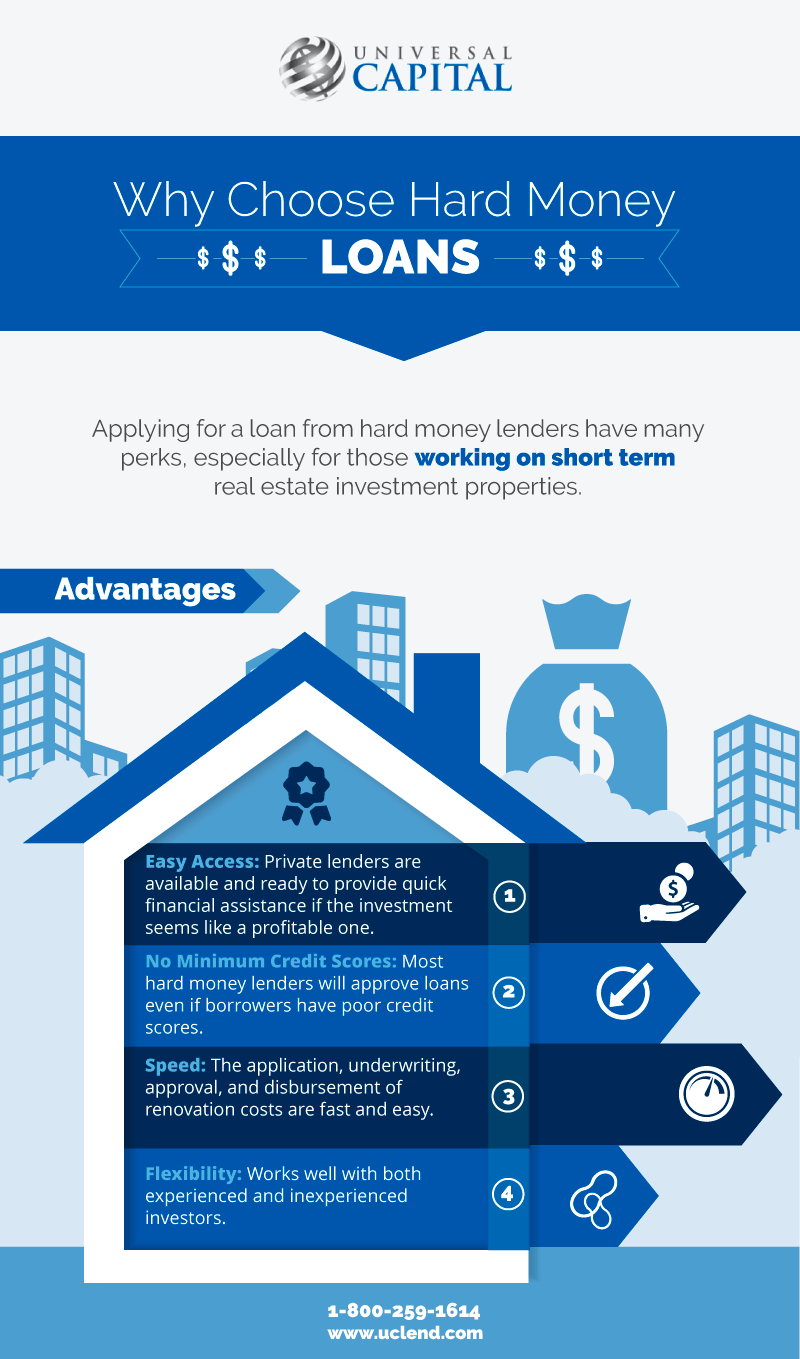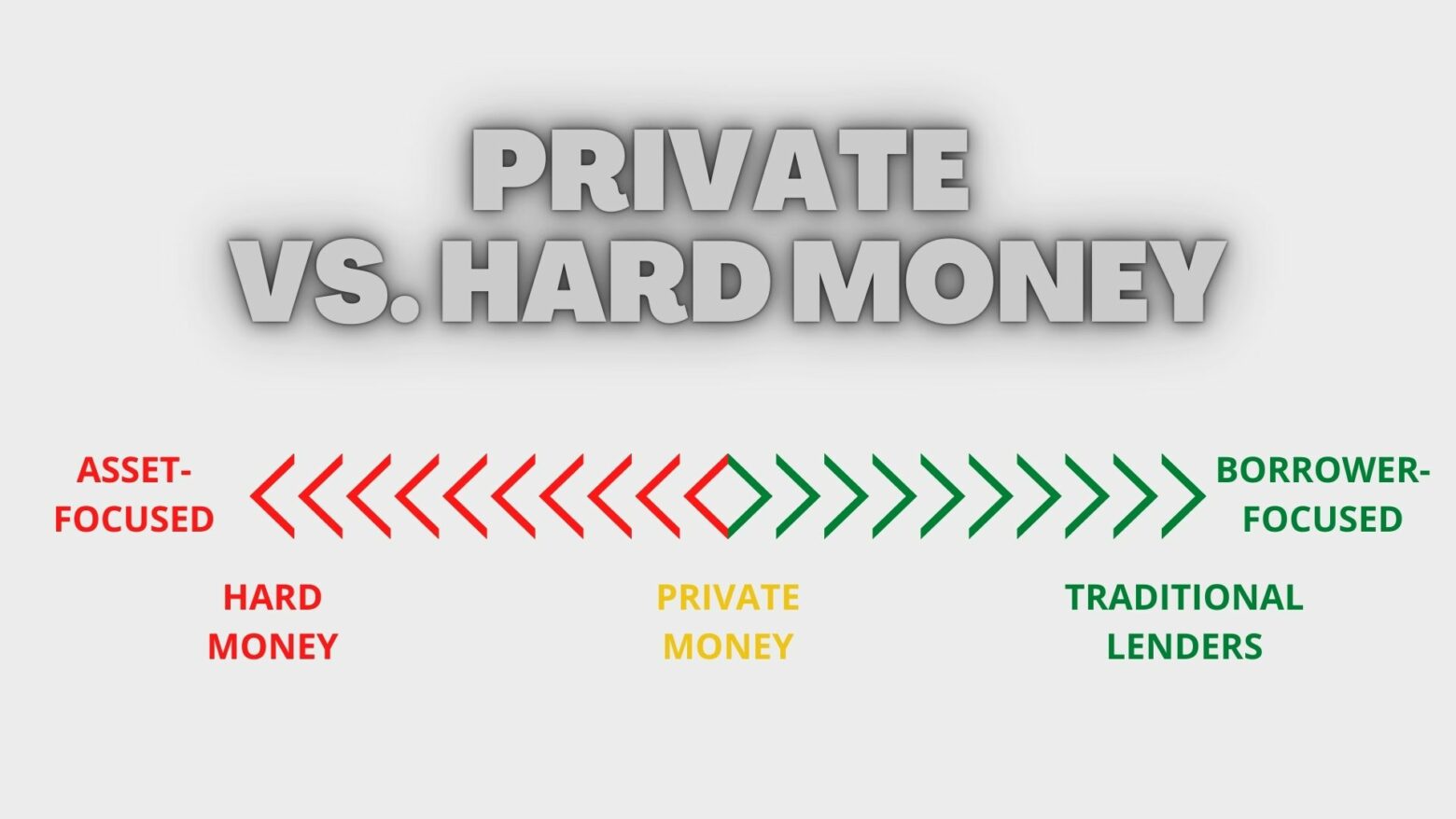Exploring Hard Money Lenders in Atlanta: Your Guide to Quick Funding Options
Exploring Hard Money Lenders in Atlanta: Your Guide to Quick Funding Options
Blog Article
Difficult Money Lenders vs. Conventional Lendings: What You Need to Know
In the world of funding, the selection between difficult money lenders and conventional car loans provides distinctive advantages and difficulties that quality cautious factor to consider. Hard cash finances can assist in fast financing for time-sensitive jobs, albeit at a higher expense, while typical financings usually provide more favorable terms however need stringent credentials standards.
Recognizing Hard Money Financing
Hard money offering represents an unique monetary system that differs significantly from conventional funding structures. This kind of funding is largely asset-based, indicating that the funding is secured by property or building as opposed to counting greatly on the debtor's credit reliability. Hard cash loan providers generally give short-term car loans with higher rate of interest compared to conventional funding options, which might make them appealing for sure debtors, especially actual estate financiers.
The key purpose of tough money fundings is to promote quick accessibility to funding, allowing customers to confiscate time-sensitive financial investment opportunities or address urgent economic requirements. These financings are frequently refined faster than conventional car loans, as they call for less documents and less underwriting standards. Consequently, difficult money providing serves a specific niche within the borrowing market, providing to those who may not certify for conventional funding or that need prompt funds.

Overview of Standard Loans

Rate of interest for standard financings are influenced by market conditions and the borrower's creditworthiness, frequently causing lower rates contrasted to alternative funding methods. Repayment terms can differ, normally ranging from 3 to thirty years, with repaired or adjustable passion choices.
Among the specifying features of standard loans is their amortization structure, which allows borrowers to make constant monthly payments over the financing term. This predictability aids in financial preparation and budgeting. Additionally, traditional car loans often provide consumers the chance to construct equity, specifically in the case of property financing.
Trick Distinctions in Terms
When contrasting funding alternatives, comprehending the key differences in terms in between difficult cash lenders and conventional loans is vital for consumers. One considerable difference depends on the authorization process. Tough cash lendings usually offer quicker access to funds, favorably typically approved within days, while standard lendings can take weeks or perhaps months due to substantial underwriting procedures.
One more crucial difference pertains to rate of interest. Tough money lending institutions charge greater interest prices, usually ranging from 8% to 15%, mirroring the boosted risk they assume. On the other hand, standard loans usually include reduced rates, frequently between 3% and 6%, relying on the consumer's creditworthiness and market conditions.

Additionally, repayment terms differ; tough cash lendings typically have much shorter terms, balancing 1 to 3 years, while conventional financings can prolong as much as thirty years, offering consumers with more time to pay off. Understanding these terms is crucial for making educated financial decisions.
Pros and Disadvantages of Each Choice
Examining the pros and disadvantages of difficult cash lending institutions and typical fundings is crucial for debtors seeking the most effective financing option for their requirements. Difficult money lenders offer quick accessibility to resources, making them optimal for time-sensitive jobs. Their versatile financing standards can suit borrowers with bad debt or one-of-a-kind home review types. Nevertheless, the high-interest prices and short payment terms related to difficult money finances can result in economic stress otherwise managed thoroughly.
Alternatively, traditional lendings give reduced rates of interest and more extended payment periods, making them a much more budget-friendly long-term option. This security is advantageous for borrowers aiming to buy actual estate or money significant purchases. The application process can be extensive and troublesome, commonly calling for considerable paperwork and a strong debt history.

Inevitably, the selection in between difficult money lending institutions and typical lendings rests on private circumstances, consisting of urgency, credit condition, and the particular financial objectives of the consumer. Each alternative offers unique advantages and difficulties, demanding a detailed assessment of one's financial scenario prior to choosing.
Selecting the Right Funding
Selecting the appropriate financing choice is crucial for debtors aiming to achieve their financial purposes successfully. When thinking about tough money loan providers versus conventional finances, a number of factors must be evaluated, including speed, cost, and objective of the loan.
Tough money fundings are typically faster to protect, appealing to those requiring immediate funding for real estate financial investments or immediate monetary needs. Nevertheless, these lendings often include higher rates of interest and much shorter repayment terms, making them a lot more over at this website appropriate for temporary tasks that can rapidly generate returns.
On the other hand, standard financings have a tendency to offer lower rate of interest and longer repayment durations, making them excellent for long-term funding needs, such as purchasing a home. They need detailed credit history assessments and comprehensive documentation, which can lengthen the authorization process.
Inevitably, the selection between hard cash and traditional financings ought to line up with the customer's details financial goals, threat resistance, and timeline. Evaluating the urgency of the funding, the possible return on financial investment, and personal financial situations will lead borrowers in making a notified decision that best supports their objectives.
Final Thought
In recap, both tough money loan providers and conventional lendings serve unique objectives within the funding landscape. Hard money fundings offer quick access to resources, albeit with higher prices and much shorter terms, appropriate for immediate financial requirements. Conversely, traditional lendings supply lower rates of interest and prolonged payment durations, dealing with those seeking security and reduced monthly settlements. The choice in between these alternatives inevitably depends upon specific monetary circumstances, necessity of funding, and threat resistance. Cautious evaluation is vital for optimum financing end results.
Tough cash finances can facilitate quick funding for time-sensitive jobs, albeit at a greater expense, while conventional financings usually use more desirable terms yet need rigid qualification criteria. These fundings are often refined faster than typical lendings, as they need much less documentation and fewer underwriting criteria (hard money lenders atlanta). These car loans are generally supplied by financial institutions and credit rating unions, and they come in various kinds, consisting of mortgages, personal fundings, and car financings.One of the defining attributes of typical loans is their amortization structure, which permits consumers to make constant month-to-month settlements over the loan term. Hard money fundings often provide quicker access to funds, with approvals typically approved within days, while standard car loans can take weeks or also months due to substantial underwriting treatments
Report this page